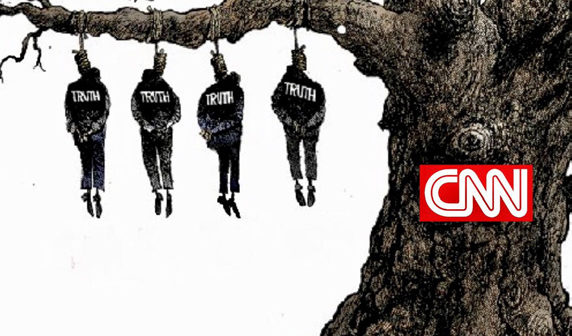“You’re Fake News” appeared on the campaign trail amid the 2016 presidential race. Attributed to then-candidate Donald J. Trump because of its prolific use, many assumed that he was the originator of the term. No doubt Trump’s continuous spreading of fake news continues to make him a viable source for the information.
The New York Times in real time fact-checked the State of the Union address Jan. 30, along with other entities like the Pulitzer Prize-winning, “POLITIFACT.” The entities found cumulatively almost 20 statements that were questionable. According to Politifact, “We tallied two false statements, four mostly false, two half true, three mostly true and one true [statement].”
Despite beliefs and the self-proclamation that the progenitor of the term “Fake News” is Donald Trump, the term had been used in print publications for quite some time.
The daily “Buffalo Commercial” dated May 2, 1891, wrote; “The public taste is not really vitiated and it does not in its desire for ‘news’ absolutely crave for distortions of facts and enlargements of incidents; and it certainly has no genuine appetite for ‘fake news’ and ‘special fiend’ decoctions such as were served up by a local syndicate a year or two ago.” The year prior, the Cincinnati Commercial Tribune dated June 7, 1890, published the headline, “Secretary Brunnell Declares, Fake News About his People Being Telegraphed Over the Country.”
The term “Yellow journalism” was the initial colloquial term in the United States that preceded Fake News and was categorized as the sensationalizing, exaggeration or pure fabrication of information. Yellow journalism was associated with several instances where facts were distorted with the intent of reaching more readers.
In the early 1900s the New York World newspaper, (1862 – 1931) was heralded as the pioneer of Yellow journalism. At the height of its initial branding as Yellow News, New York World was under the direction of publisher Joseph Pulitzer (1883-1911). Ironically, Joseph Pulitzer’s name should ring several bells as the “Pulitzer Prize,” (of which was named after him) is awarded for outstanding achievements in Journalism, literature, poetry, music dramaturgy and photography.
Notwithstanding the timeline of when the term was coined or its prominence in recent times, the fact remains that fake news is only a synonym for a lie. In his World Communications Day address dated Jan. 24, Pope Francis made a call to action to stop the dissemination of fake news and to adorn the mantle of responsibility, while embracing the truth. The pontiff spoke about why fake news is so effective by stating, “This [fake news]false but believable news is “captious,” since it grasps people’s attention by appealing to stereotypes and common social prejudices, and exploiting instantaneous emotions like anxiety, contempt, anger and frustration.”
The realization brought by Pope Francis here conveys the analogous thoughts that the world community thrives off. Those polarizing topics that are captivating because they continue to prey on the fear, frustrations and negative emotions of a people that are devoid of hope.
Pope Francis’ message resonated beyond the draping of religion as he quoted Russian novelist, journalist and philosopher Fyodor Dostoyevsky. Dostoyevsky in The Brothers Karamazov, II, 2 stated, “People who lie to themselves listen to their lie come to such a pass that they cannot distinguish the truth within them, or around them, and so lose all respect for themselves and others.
Dostoyevsky continued, “And having no respect, they cease to love, and to occupy and distract themselves without love they give way to passions and too coarse pleasures, and sink to bestiality in their vices, all from continual lying to others and themselves.” Pope Francis alluded adequately to Dostoyevsky’s writings, as he emphasized his point that the truth will allow individuals to be free.
Pope Francis acknowledged that we must recognize fake news and readily be able to identify the various forms it presents itself. Francis praised the large efforts already underway by tech companies, formal institutions, and legal entities to fray the spread of false information. However, Francis acknowledged that it takes a considerable amount of discernment on the part of the audience, which would allow them to get information for themselves before believing the information and circulating it themselves.
Francis suggested that the antidotes to falsehoods lie with people who are not greedy, eager to listen and make sincere efforts through dialogue to force the truth to emerge while taking responsibility for how they use language.
Similarly, in daily communication the world must remain acutely aware of our responsibility, to speak words that do not cause or influence an atmosphere of hysteria. Benjamin Franklin stated,
“As we must account for every idle word, so must we account for every idle silence.” In the age of social media, it is essential to understand the matriculating effects of what is uttered and written. Every post, text message or written word should be vetted with the thought of, “Will my words hurt or harm a situation.”





